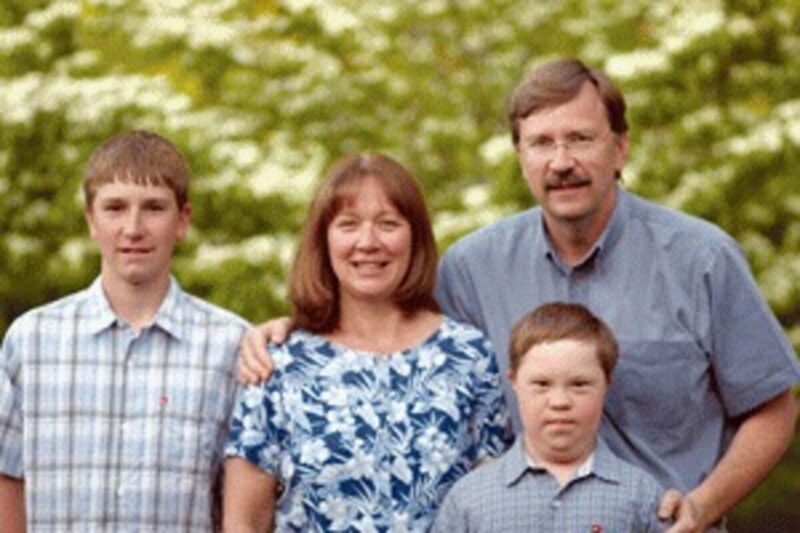Scott Swanson
Of The New Era
Dr. Alan Blake, the longest-practicing medical doctor in Sweet Home, will shut down his practice at Sweet Home Medical Clinic on Aug. 2, after 19 years, to move to Hungary with his family to do missionary work.
Blake, 49, and his wife Zsuzsa (pronounced Zoo-sha), who is Hungarian by birth, say their departure fulfills a longtime desire to be Christian missionaries. They plan to leave Aug. 6 for Budapest, where they will work with a mission group called Entrust, which trains leaders for new and growing churches that are emerging from 50 years of communist-imposed atheism.
“We wanted to go into missions,” Alan Blake said. “We’ve always felt led.”
For a while, he said, he was interested in becoming a medical missionary to Latin America and he learned Spanish, and took a number of short missions trips there over the years.
But after the fall of the Iron Curtain, which began when Hungary opened its borders to the West in 1989, the year after they arrived in Sweet Home, the Blakes started thinking about going to Eastern Europe.
They suspected that Zsuzsa’s background as an elementary school teacher and the fact that she speaks fluent Hungarian after growing up in a family that escaped during the Hungarian revolt against the Soviets in 1956, might prove helpful. She also has a degree in German from the University of Washington.
“We started knocking on doors, one door then another, and found (Entrust),” Blake said.
He said that a plethora of new churches in Eastern Europe have resulted in a leadership void, since there was virtually no training of church leaders in the 50 years prior to the fall of communism. Plus, although seminaries are training pastors, the graduates know theology but don’t have practical experience in the day-to-day realities of running a church, Blake said.
“For 50 years God has been dead,” Zsuzsa Blake said. “It’s been forced atheism. A whole generation knows absolutely nothing.”
She noted that Hungary, “a very traumatic country,” has the highest suicide rate in the world.
Zsuzsa Blake, 49, plans to work with women in Hungarian churches, training them to become women’s ministry leaders in their own churches. She has led women’s Bible studies at Community Chapel, the church in which they have been active members for 18 years, and the two of them have been involved in small groups, church council, and building committees as well.
Zsuzsa Blake said Hungarians tend to be reserved, after years of totalitarian government.
“They don’t trust people,” she said. “It used to be that if you said the wrong thing, you’d end up in Siberia.”
Her parents are known as “’56ers” because they fled the country during the 1956 revolt, and that distinction has proved to be a door-opener for her.
Alan Blake said that his wife was introduced to one woman who, when told that Zsuzsa was the daughter of ’56ers, burst into tears and hugged her.
“They’re a very nationalistic people,” Zsuzsa Blake said. “They consider me a returning Hungarian.”
The Blakes, who “rolled up on the Fourth of July (in 1988) in our U-Haul,” Zsuzsa said, have four sons: Nathanael, 23, a writer for American Life League publications; Nicholas, 23, who is married to Hanna and is a student at Oregon State University; Isaiah, 13, and Zachary, 12.
Isaiah and Zachary, who has Down syndrome, will be going to Hungary with them, where they will attend a Christian school in Budapest for children of missionaries, diplomats, business executives and some Hungarian nationals.
As unpaid volunteers, the Blakes will be living on donations they receive from supporters, which can be sent on their behalf to Community Chapel or directly to Entrust (www.entrust4.org).
They plan to give a slide show presentation about their plans at 7 p.m. Tuesday, June 12, at the Community Center. The public is welcome.
They say they will leave with mixed emotions, having lived for nearly two decades in Sweet Home.
“Alan knows everybody in town,” Zsuzsa said. But they are eager to see what the future will bring.
Alan Blake said he recently has started delivering babies of women whom he delivered.
“That was a little weird,” he said.
Hungary, for those rusty on their world history, prior to World War I was three times the size it is today – the size of the state of Indiana. The nation was sliced apart and two-thirds of the land was divided among its neighbors after that war, and the Blakes say that, in addition to the 10 million in Hungary itself, 2.5 million Hungarian speakers live in the adjacent areas of Romania, Ukraine, Serbia and Slovakia.
Many of them live in third-world conditions.
Zsuzsa Blake said that when she and her family returned to Hungary in 1978 to visit her grandparents, they lived in a hut with a dirt floor – “immaculate, but the floor was dirt.”
That’s where Alan Blake comes in. After learning Hungarian, which is considered one of the harder languages in the world to learn, he hopes to move out of Budapest into an area where he can use his medical skills as a ministry.
“Eventually I’d like to end up in northwest Romania,” he said. “I could do third-world medicine and she could still do Hungarian language ministries.”





